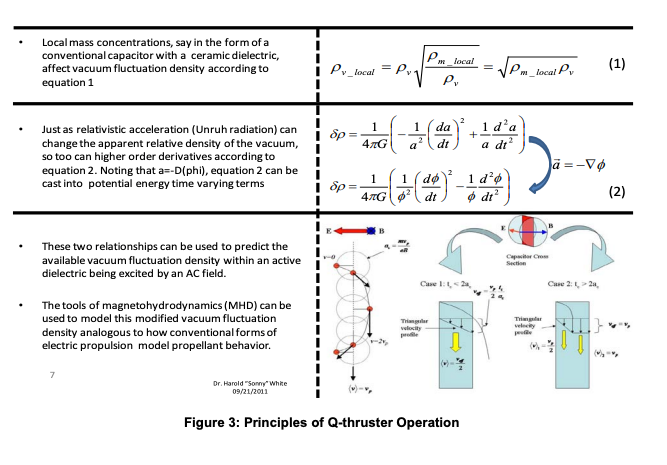-
Posts
750 -
Joined
-
Last visited
-
Days Won
6
Content Type
Profiles
Forums
Events
Everything posted by Alex_Krycek
-

The Post-Globalization Order: The Views of Peter Zeihan
Alex_Krycek replied to Alex_Krycek's topic in Politics
Yes, and the point that many seem to be missing is that we take the myriad benefits of globalization for granted. None of us have any first hand experience living in a non-globalized system. As you point out, it's the interconnectedness of globalization, the ease with which goods flow between nations over long distances that affords us everything from sophisticated technology to food security to rising income levels and access to higher standards of living. Regarding food security, it's scary to understand just how fragile many countries are in the world when it comes to basic nutrition and sustenance. Vast swaths of Africa and middle east are net importers of food. The slightest disruption to global supply chains or shortages in commodities like wheat or rice cause widespread famine in these regions. Food insecurity was one of the trigger points of the Arab Spring uprising back in 2010. Turns out when people can't eat, they get pretty angry. This report from UNICEF has some good data on the current state of food security: https://www.unicef.org/media/72676/file/SOFI-2020-full-report.pdf What will happen to these countries when they get hit with the 1-2 knock out punch of climate change (which already exacerbates food security) and supply chain disruptions due to collapsing populations? Unless countries that are net importers of food rapidly, rapidly undergo revolutions in sustainable food production, they're toast. As a side note, most of the world's phosphorous for use in fertilizer comes from Russia and Ukraine, the flow of which has been severely disrupted due to the war. We've mentioned here how technology will come to the rescue in the form of robots, renewable energy, etc. We should acknowledge that advanced technology is massively energy intensive to produce, and can only be done with relative ease in a globalized system. If we want a global "green transition", this will require a globalized system to facilitate. Zeihan points out here how much energy it takes to create a product such as a lithium battery, or solar panel, or electric vehicle. Most of the world's steel for example comes from China and Russia, the two countries which are disintegrating fastest in terms of demography. Finally there is the argument that once the global system breaks in several key places it will be increasingly difficult to fight the avalanche of entropy that will follow. When critical infrastructure goes offline and there's nobody there to fix it, it's gone for good. Without an ability to produce advanced technology to save the day, the lights go out and stay out. Without an ability to make enough food to feed everyone, people begin to starve and then fight for what's left. Anarchy ensues. Then we're back to the stone age rather quickly indeed. But that's the pessimistic view. I'm sure we'll adapt, somehow. Hopefully... His latest book is worthwhile even if just to understand how technology has lifted humanity out of pure misery and suffering, and just how excrutiatingly long that process took. Most human decisions have been driven by pure practicality - how to move something in a way that doesn't use up too much energy (enter deep water navigation), how to stop the neighboring tribe from coming and killing everyone, how to get enough to eat, etc. For practically all of human history, more people meant a better life. More hands on the farm, more soldiers in your army, more workers in your factory, more consumers for your products. Now we're diverging from that trend in unprecedented fashion with no real understanding of what will come next. -

The Post-Globalization Order: The Views of Peter Zeihan
Alex_Krycek replied to Alex_Krycek's topic in Politics
I believe generally speaking it is urbanization: as people move to the city people see children as an expensive burden, not an extra set of hands like on a farm. So movement away from the countryside to the city would be one factor. Also a rise in intelligence. The smarter people get, the less interested they are in having kids until later in life, and generally they have less kids than in the past. Finally I would think sheer pessimism and gloom would be another component. With the state of many countries and how many people are struggling to make ends meet, having kids is the last thing on their mind (which kind of goes back to point 1: kids have become an expensive luxury). I mean, historically speaking the world has been in never ending crisis and upheaval for all of human history, just some places have it slightly better than others some of the time. Also we have to keep in mind that the norm for civilizations historically speaking is to rise and then collapse, so this might be an inevitable downward cycle. However, one achilles heel of analyses like PZ's is he doesn't take into account the unknowns. I know its obvious, but the development of human society isn't linear, that much is clear. The situation could diverge in ways we can't currently comprehend, especially with novel technology affecting the situation. -

The Post-Globalization Order: The Views of Peter Zeihan
Alex_Krycek replied to Alex_Krycek's topic in Politics
This is what I always thought too. Apparently rapid population decline is massively destabilizing though, according to PZ. China is going to be the "canary in the coal mine" to watch. However Japan has managed to do well. -

The Post-Globalization Order: The Views of Peter Zeihan
Alex_Krycek replied to Alex_Krycek's topic in Politics
I suppose it's not technically "irreversible" on a long enough timescale. A country just can't produce enough people overnight to regain the population levels that it needs. Decades are required. It's not like ordering a product where that product can be topped up in an inventory when the next shipment arrives. These are deep, seismic shifts that are occurring. The main point Zeihan makes is that globalization is necessary to sustain the critical infrastructure of most modern countries, and there is a necessity to maintain a certain amount of people to sustain most countries' ability to interact meaningfully within a globalized system. So without the people, a country can't participate in a globalized system, and if they can't participate in the globalized system, there will be massive destabilization in many sectors of that country due to the effect it will have on its critical infrastructure (due to its reliance on the interconnected relationships (trade, defense, transport, energy) that globalization affords. This explanation about the current state of the Chinese collapse illustrates the overall point of the population "death spiral": https://www.youtube.com/watch?v=0MSV2bh48MA -
Recently I've been reading and watching some of Peter Zeihan's views, specifically in his latest book: The End of the World is Just Beginning: Mapping the Collapse of Globalization. Zeihan is an expert on demography and geopolitics, and combines the two disciplines to produce some sobering forecasts about what the world will look like in the coming decades, particularly as numerous countries suffer irreversible population implosions due to insufficient birth rates. China is possibly the most well known case, but many other countries will suffer exactly the same fate in the 21st century. A key point that Zeihan makes is it will be extremely difficult, if not impossible, for countries to regain their population levels after this happens, namely because it takes so long to generate, well, a generation. This article points out just how serious China's population decline is anticipated to be. Link to Article The United States, on the other hand, seems to be in a pretty good place, demographically and geographically speaking, to make the transition. Overall Zeihan has some interesting points. Many of his points are directly inferable from current events. For example, he points out that Russia is basically in its last generation before collapse, and Putin is only accelerating this. According to Zeihan, the planned 500,000 man onslaught, a result of Russia's winter-long mobilization effort which it will throw at Ukraine this spring, will be Russia's final ability to fight a conventional war (should they not have a resounding victory across the board). They just won't have enough people (in this case fighting age men) after this. Zeihan has a youtube channel and a website if you want to investigate him. His views are somewhat antithetical to the idea that less people in the world would be better. Zeihan is obviously an expert in his field, and his predictions are based on verifiable trends, and are quite pessimistic for most countries. He sees some countries regressing rapidly into a state of anarchy due to the breakdown of critical infrastructure and logistics, for example, triggered again by not enough people. However, I wonder what unforeseeable (or foreseeable) events might drive the world into an alternate state of reality other than the one Zeihan portrays. For example, I can easily see A.I taking over much of the human labor that will vanish as a result of the population collapse. Interestingly, the US and its allies strategy to control microchip and semiconducter production seems to be a very relevant gambit designed to prevent any adversary from developing a viable A.I. integrated military, or at least one that can compete with the West and its allies. Another example might be human cloning or so called "baby farms" where humans are produced en masse in a laboratory, not unlike the Institute in Fallout 4. In short there are many avenues for adaptation in a world with much less people. Finally, there's the viewpoint that population collapse for the world is long overdue, thanks to the threat to biodiversity and collapsing ecosystems caused by globalization. Zeihan points out that Japan has already reached a "post boomer" society, and has handled it rather elegantly. Perhaps the coming population decline and deconstruction of globalization will be a net positive for everyone. Thoughts?
-
"all knowledge is historically situated and is influenced by social power and politics" This phrase reveals that the course designer's epistemology is one of social constructionism. Social constructionism posits that there is no objectively true knowledge in and of itself; knowledge is inherently created and defined by the society in which it arises (and therefore is the offshoot of gender, race, class, etc). Therefore the body of knowledge that underpins all the scientific disciplines is subject to "re-interpretation" since it is inherently the result of a racist and sexist society. This epistemological outlook is Neo-Marxist in origin and in my opinion is nothing more than thinly veiled solipsism, fundamentally incompatible with science. The rest of the course description is just grandiose jargon designed to make it sound legitimate.
-
This aligns with the idea that Trump had plans to sell the secrets to the Saudis, who have wanted nuclear weapons for years. Remember, all Trump cares about is money. https://www.msn.com/en-us/news/politics/jared-kushner-theories-swirl-over-242b-saudi-money-after-trump-mole-claims/ar-AA10DUzU
-
Not to worry - none of the classified information had pictures so Trump wasn't interested.
-

What are you listening to right now?
Alex_Krycek replied to heathenwilliamduke's topic in The Lounge
Authentic dub. Haven't heard this in a while. Good vibes. -

NASA Eagleworks - Advanced Propulsion Physics Research
Alex_Krycek replied to Alex_Krycek's topic in Speculations
A Torsion Pendulum designed to produce thrust I suppose: Anomalous Thrust Production from an RF Test Device Measured on a Low-Thrust Torsion Pendulum This paper describes the eight-day August 2013 test campaign designed to investigate and demonstrate viability of using classical magnetoplasmadynamics to obtain a propulsive momentum transfer via the quantum vacuum virtual plasma. https://ntrs.nasa.gov/citations/20140006052 -
Recently learned of NASA's Eagleworks laboratory which is conducting advanced propulsion research. A waste of taxpayer money? Not in my view; we need more of this kind of research. https://ntrs.nasa.gov/citations/20110023492 ABSTRACT NASA/JSC is implementing an advanced propulsion physics laboratory, informally known as "Eagleworks", to pursue propulsion technologies necessary to enable human exploration of the solar system over the next 50 years, and enabling interstellar spaceflight by the end of the century. This work directly supports the "Breakthrough Propulsion" objectives detailed in the NASA OCT TA02 In-space Propulsion Roadmap, and aligns with the #10 Top Technical Challenge identified in the report. Since the work being pursued by this laboratory is applied scientific research in the areas of the quantum vacuum, gravitation, nature of space-time, and other fundamental physical phenomenon, high fidelity testing facilities are needed. The lab will first implement a low-thrust torsion pendulum (<1 uN), and commission the facility with an existing Quantum Vacuum Plasma Thruster. To date, the QVPT line of research has produced data suggesting very high specific impulse coupled with high specific force. If the physics and engineering models can be explored and understood in the lab to allow scaling to power levels pertinent for human spaceflight, 400kW SEP human missions to Mars may become a possibility, and at power levels of 2MW, 1-year transit to Neptune may also be possible. Additionally, the lab is implementing a warp field interferometer that will be able to measure spacetime disturbances down to 150nm. Recent work published by White [1] [2] [3] suggests that it may be possible to engineer spacetime creating conditions similar to what drives the expansion of the cosmos. Although the expected magnitude of the effect would be tiny, it may be a “Chicago pile” moment for this area of physics. https://ntrs.nasa.gov/api/citations/20110023492/downloads/20110023492.pdf Some diagrams from the research paper below: NASA Eagleworks.pdf
-
FINA got it right in my opinion. Transgender athletes like Lia Thomas are unfairly competing in the women's category. As FINA stated, this is about fairness. They will create an "open" category for all others to compete in.
-

What are you listening to right now?
Alex_Krycek replied to heathenwilliamduke's topic in The Lounge
Cool soundtrack, cool film. -
For areas of the Earth that have experienced significant impact events, something measurable on the Torino Scale, would there be any possible way to measure effects on the subatomic particles within the radius of the impact? If so, what effects might one be looking for? For example, how could one setup an experiment to measure possible subatomic effects of the Vredefort Impact event in Southern Africa? Stony asteroid impacts that generate an airburst[19] Impactor diameter Kinetic energy at Airburst altitude Average frequency (years) Recorded fireballs (CNEOS) (1988-2018) atmospheric entry airburst 4 m (13 ft) 3 kt 0.75 kt 42.5 km (139,000 ft) 1.3 54 7 m (23 ft) 16 kt 5 kt 36.3 km (119,000 ft) 4.6 15 10 m (33 ft) 47 kt 19 kt 31.9 km (105,000 ft) 10 2 15 m (49 ft) 159 kt 82 kt 26.4 km (87,000 ft) 27 1 20 m (66 ft) 376 kt 230 kt 22.4 km (73,000 ft) 60 1 30 m (98 ft) 1.3 Mt 930 kt 16.5 km (54,000 ft) 185 0 50 m (160 ft) 5.9 Mt 5.2 Mt 8.7 km (29,000 ft) 764 0 70 m (230 ft) 16 Mt 15.2 Mt 3.6 km (12,000 ft) 1,900 0 85 m (279 ft) 29 Mt 28 Mt 0.58 km (1,900 ft) 3,300 0 Based on density of 2600 kg/m3, speed of 17 km/s, and an impact angle of 45°
-
I think Greene's argument is logical. His argument kind of reminds me of my old boss, who was incredibly excited about his new BMW. He even had employees take a special break so they could come out and look at it. Nobody thought his car was special except him.
-
Have you tried getting this person into the outdoors (nature)? For me regular day trips into nature for a short hike help considerably. Also, what sorts of coaching exercises have you done with them? Any structured goal setting or values clarification, that sort of thing? Usually depressed people have no direction and feel hopeless as a result. Structured goal setting can help that.
-

Idea for why potential aliens would have no reason to interact with us
Alex_Krycek replied to ALine's topic in Speculations
We shouldn't forget that if indeed mankind has been observed by aliens for any length of time, their suspicions about our destructive behavior will have been completely confirmed. They will have witnessed firsthand the scale of slaughter human beings have wrought not only on the animal kingdom (decimating the populations of countless species) but also on our own species, through countless episodes of genocide. Given the verifiable track record our species has demonstrated and continues to demonstrate, it would be completely insane to land in Times square and start handing out olive branches to such a species. Human beings have already proven the Dark Forest Theory to be entirely justified. -

Idea for why potential aliens would have no reason to interact with us
Alex_Krycek replied to ALine's topic in Speculations
Well, of course there is a theoretical principle that would answer this question: an Einstein-Rosen Bridge. https://journals.aps.org/prl/abstract/10.1103/PhysRevLett.126.101102 -

Idea for why potential aliens would have no reason to interact with us
Alex_Krycek replied to ALine's topic in Speculations
It's classic game theory. -------------------- Option 1 >> assume benign or no intervention from aliens >> create no defensive contingencies >> in the event of no hostile alien visitation continue existing Option 2>>assume benign or no intervention from aliens >> create no defensive contingencies >> in the event of hostile alien visitation potentially go extinct Option 3>> assume hostile intervention from aliens despite no precedent >> create defensive contingencies >> in the event of hostile alien visitation increase odds of species survival commensurate to contingencies prepared for -------------------- In this set of options one can only logically choose Option 3, regardless of one's preexisting beliefs, since the consequences of extinction resulting from option 2 are so grave. -

Idea for why potential aliens would have no reason to interact with us
Alex_Krycek replied to ALine's topic in Speculations
I read this theory; it's pretty terrifying - not least because it makes perfect sense. Another point it raises is the responsibility of the government. If you work in the national security apparatus of a competent nation state and there is not a serious program to defend against extraterrestrials, then that government is derelict in its duty. Why? Because we simply don't know what could be coming our way, we don't know what vessel might show up on our sandy white beaches some day and ruin our little island paradise. The only responsible course of action is to assume and prepare for the worst. I suppose this sentiment should be applied to the NEO threat as well. -
No, it hasn't been debunked. The witnesses, of which there are dozens, stand by their description of events even today and are entirely credible in my view. And that psychologist was Dr. John Mack, head of the department of psychiatry at Harvard Medical School. It would be better to suspend your belief and watch the documentary before rushing to conclusions.
-

Idea for why potential aliens would have no reason to interact with us
Alex_Krycek replied to ALine's topic in Speculations
Agreed. The list of likely outcomes if they did attempt communication would be rather discouraging: Immediate Death Imprisoned in a cage Studied and Dissected Paraded around and gawked at by the unwashed masses It seems more logical that they would be primarily interested in the planet, not necessarily human beings. Human beings only inhabit 10% of the planet. We only account for .01% of the life on Earth. Humans are a side show to the main attraction. -

Idea for why potential aliens would have no reason to interact with us
Alex_Krycek replied to ALine's topic in Speculations
With the species you mentioned communication as an exchange of data manifests along different channels. Some species are limited to channels that humans have access to but have evolved beyond. Pheromones would be an example of this. Humans respond to pheromones subconsciously but it is not our primary channel of transmitting data, as it is with ants. Humans have evolved into a higher dimension of communication that involves semiosis - the transcription of signs and symbols - in order to relay meaning. Other mammals employ sound as humans do but have not evolved into semiotics, while some animals seem to have access to channels that humans do not. Some birds, for example, can see the Earth's mangnetic field, a process called magnetoreception, which is beyond human capability. This is to say nothing of the technology humans have developed to extend our sensory awareness beyond that attributable to physical evolution, allowing us to perceive a myriad of channels including the subatomic realm, spectrums of light, radiation,etc. So I think it would be reasonable to assume that an alien being could develop a communicative ability that is beyond our comprehension, simply by existing long enough in a different evolutionary environment. Similarly if we consider these channels as hierarchical levels, with chemical stimuli existing on a more basic level, sound further up the ladder, semiotics further still, and so on, then a more advanced being could feasibly "step down" this ladder to communicate, as humans can if we want to influence an ant or whistle to a dog. What the next levels on this hierarchy could potentially be is an interesting question.




